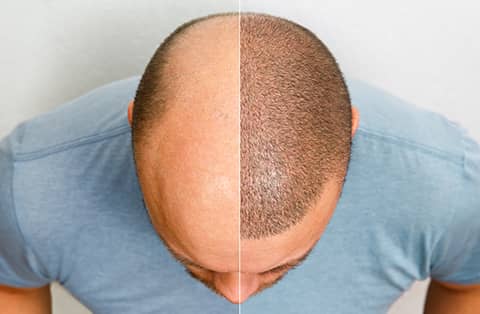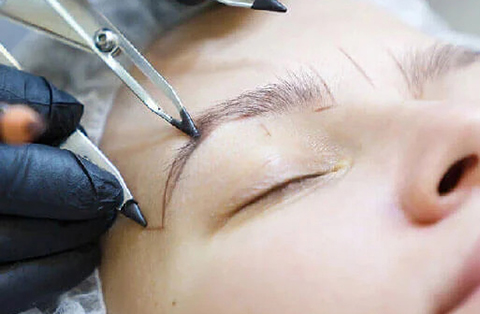Are you looking for a permanent solution to missing teeth or unstable dentures?
Mini dental implants (MDIs) might be the answer you’ve been searching for. These innovative implants offer a less invasive, more affordable option for restoring your smile. Whether you’re curious about the procedure, the recovery process, or the long-term benefits, this article covers everything you need to know.
Discover how mini dental implants can improve your dental health, boost your confidence, and provide a lasting solution to dental problems.
What are Mini Dental Implants?
Mini dental implants (MDIs) are smaller, less invasive alternatives to traditional dental implants. They are typically about half the diameter of standard implants and consist of a one-piece screw less than 3mm in diameter, which acts as both the tooth root and the abutment.
MDIs are used to stabilize dentures, replace single missing teeth, or support bridges. They require less bone density, making them suitable for patients who may not be candidates for conventional implants. The procedure is quicker, often completed in a single visit, with a faster recovery time and minimal discomfort.
Benefits of Mini Dental Implants
Mini dental implants offer numerous advantages over traditional dental implants. Below is a comprehensive list of the key benefits:
Less Invasive Procedure: MDIs require smaller incisions and less bone drilling, resulting in a quicker, less painful procedure.
Faster Recovery Time: Patients typically experience a shorter healing period compared to traditional implants.
Lower Cost: Mini dental implants are often more affordable, making them a cost-effective option for many patients.
Immediate Results: In many cases, MDIs can be loaded with a prosthetic tooth on the same day as the implant procedure.
Suitable for Less Bone Density: MDIs can be placed in patients with lower bone density without the need for bone grafting.
Stabilizes Dentures: MDIs can secure loose dentures, providing better stability and comfort.
Minimal Discomfort: The smaller size and less invasive nature of MDIs result in less post-operative pain and discomfort.
Versatility: MDIs can be used to replace single teeth, support bridges, or stabilize dentures.
High Success Rate: MDIs have a high success rate and provide long-term stability and function.
Candidates for Mini Dental Implants
Mini dental implants are suitable for a wide range of patients. Below is a list of ideal candidates for this procedure:
Patients with Insufficient Bone Density: Those who lack sufficient bone mass for traditional implants can benefit from MDIs without needing bone grafting.
Denture Wearers: Individuals struggling with loose or unstable dentures can achieve better stability and comfort with MDIs.
Patients Seeking Quick Solutions: Those looking for a faster, less invasive option for tooth replacement will find MDIs ideal due to the streamlined procedure and rapid recovery time.
Individuals with Single Tooth Loss: MDIs are perfect for replacing a single missing tooth, providing a secure and aesthetic solution.
Those with Budget Constraints: Patients looking for a cost-effective alternative to traditional implants can benefit from the affordability of MDIs.
Older Adults: Seniors who may not be suitable candidates for extensive dental surgeries can opt for the minimally invasive nature of MDIs.
Patients in Good General Health: Individuals who are generally healthy and maintain good oral hygiene practices are excellent candidates for MDIs.
While mini dental implants have many advantages, they may not be appropriate for all dental implant cases. The choice between mini dental implants and traditional implants depends on various factors, including the patient’s specific oral health needs, bone density and the type of oral restoration required.
How Mini Dental Implants Procedure Works?
Mini dental implants work through a straightforward and efficient process. Here’s an overview of how they function:
Consultation and Planning: The process begins with a thorough dental examination and imaging (X-rays or CT scans) to assess the jawbone structure and determine the optimal placement of the implants.
Preparation: The dentist will prepare the site by cleaning the area and, if necessary, administering a local anesthetic to ensure the patient is comfortable during the procedure.
Placement: Using precise techniques, the dentist inserts the mini dental implants into the jawbone. These implants are small, screw-like posts made of biocompatible titanium.
Attachment of Prosthetic: Once the implants are securely in place, they can immediately support a prosthetic tooth or stabilize dentures. In some cases, temporary prosthetics are used until the implants fully integrate with the bone.
Healing and Integration: Over time, the jawbone naturally integrates with the titanium implants through a process called osseointegration. This provides a stable foundation for the prosthetics.
Final Restoration: After the healing period, the final prosthetic tooth or dentures are securely attached to the implants, restoring function and aesthetics.
Mini dental implants offer a less invasive and quicker alternative to traditional implants, providing immediate improvements in stability and appearance.
Disadvantages of Mini Dental Implants
While mini dental implants offer many benefits, they also have some drawbacks. Here are the key disadvantages to consider:
Limited Use: MDIs are not suitable for all tooth replacement needs, especially in areas requiring high bite force, such as molars.
Potential for Loosening: Due to their smaller size, there is a higher risk of the implants becoming loose over time.
Bone Density Requirement: While less bone is needed compared to traditional implants, sufficient bone density is still necessary for successful placement.
Shorter Lifespan: MDIs may have a shorter lifespan compared to traditional implants, especially under heavy chewing pressure.
Not Ideal for Severe Bone Loss: Patients with significant bone loss may still require bone grafting for successful implant placement.
Aesthetic Limitations: MDIs may not always provide the same aesthetic results as larger, traditional implants, particularly in the front of the mouth.
Fewer Long-term Studies: There is less long-term research available on the durability and success rates of MDIs compared to traditional implants.
Mini Dental Implants Cost
The cost of mini dental implants can vary based on several factors. Generally, MDIs are more affordable than traditional dental implants. The price range typically falls between $500 to $1,500 per implant, compared to $1,500 to $6,000 for traditional implants.
Factors Influencing Cost:
Number of Implants: The total cost depends on how many implants are needed to support the dentures or replace missing teeth.
Geographic Location: Dental procedure costs can vary widely depending on the location of the dental practice.
Dentist’s Expertise: Experienced and highly qualified dentists may charge more for their services.
Additional Procedures: Any additional procedures, such as extractions or bone grafting, will increase the overall cost.
Type of Prosthetic: The cost can also be influenced by the type and quality of the prosthetic attached to the implants, whether it’s a crown, bridge, or denture.
While mini dental implants are a cost-effective solution, it’s important to consider the long-term benefits and consult with a dental professional to determine the best option for your needs.
Differences Between Mini Dental Implants vs Other Types of Implants
Mini dental implants (MDIs) and traditional dental implants serve similar purposes but differ in several key aspects. Here’s a detailed comparison of these implant types.
Mini Dental Implants:
Size: Smaller in diameter (less than 3mm).
Procedure: Less invasive with smaller incisions.
Healing Time: Faster recovery.
Cost: Generally more affordable.
Use: Ideal for stabilizing dentures and replacing small teeth.
Bone Requirement: Suitable for patients with less bone density.
Longevity: May have a shorter lifespan under heavy chewing forces.
Traditional Dental Implants:
Size: Larger in diameter (3-6mm).
Procedure: More invasive, often requiring bone grafting.
Healing Time: Longer recovery period.
Cost: More expensive.
Use: Suitable for replacing single teeth, multiple teeth, or full arches.
Bone Requirement: Requires adequate bone density for support.
Longevity: Typically longer-lasting with proper care.
Feature | Mini Dental Implants (MDIs) | Endosteal Implants | Subperiosteal Implants | Zygoma Implants |
Size | Less than 3mm in diameter | 3-6mm in diameter | Custom-fitted framework | Longer implants anchored in cheekbone |
Invasiveness | Less invasive | Invasive | Less invasive than endosteal | Highly invasive |
Healing Time | Faster recovery | Longer recovery | Moderate recovery time | Extended recovery period |
Cost | More affordable | More expensive | Varies, moderate | Most expensive |
Primary Use | Stabilizing dentures, small teeth replacement | Single/multiple teeth replacement, full arches | Patients with minimal bone height | Severe bone loss in the upper jaw |
Bone Requirement | Suitable for less bone density | Requires adequate bone density | Sufficient gum tissue, minimal bone height | Anchored in zygomatic bone |
Longevity | Shorter lifespan under heavy forces | Typically long-lasting | Varies, effective for specific cases | Long-lasting, robust solution |
This comparison highlights the essential differences between various types of dental implants, helping you make an informed decision based on your specific dental needs and conditions.
Mini Dental Implants Recovery
The recovery process for mini dental implants (MDIs) is generally quicker and less complex than for traditional implants. Here’s an overview of what to expect:
Immediate Post-Procedure:
Discomfort and Swelling: Mild discomfort, swelling, and bruising are common immediately after the procedure. Over-the-counter pain relievers and ice packs can help manage these symptoms.
Bleeding: Slight bleeding at the implant site is normal. Biting on gauze pads can help control this.
First 24-48 Hours:
Diet: Stick to a soft food diet. Avoid hot, spicy, and crunchy foods to prevent irritation of the implant site.
Oral Hygiene: Keep the mouth clean by gently rinsing with a saltwater solution. Avoid brushing the implant site directly but maintain good oral hygiene for the rest of the mouth.
First Week:
Follow-Up Appointment: Schedule a follow-up appointment with your dentist to ensure the implants are healing properly.
Activities: Avoid strenuous activities and heavy lifting, which can increase blood pressure and disrupt the healing process.
Pain Management: Continue to manage any residual pain with prescribed or over-the-counter medications as recommended by your dentist.
Ongoing Healing:
Gradual Return to Normal Diet: Slowly reintroduce more solid foods as comfort allows.
Oral Hygiene: Resume normal brushing and flossing practices, being cautious around the implant sites.
Monitoring: Regularly check the implant site for any signs of infection, such as increased redness, swelling, or discharge. Contact your dentist if you notice any unusual symptoms.
Integration Period:
Osseointegration: Over the next few months, the jawbone will integrate with the titanium implant. This process, called osseointegration, is crucial for the stability and longevity of the implant.
Final Prosthetic: Depending on the treatment plan, the final prosthetic tooth or denture may be placed once osseointegration is confirmed.
Tips for a Smooth Recovery:
Follow Dentist’s Instructions: Adhere closely to any post-operative care instructions provided by your dentist.
Avoid Tobacco and Alcohol: These can impair healing and increase the risk of complications.
Stay Hydrated: Drink plenty of water to stay hydrated and promote healing.
Overall, the recovery from mini dental implants is typically smooth and manageable, with most patients experiencing minimal disruption to their daily lives.
Frequently Asked Questions
How long do mini dental implants last?
Mini dental implants can last 10 to 15 years or longer with proper care. Their longevity depends on factors like oral hygiene, overall health, and avoiding habits like smoking. Regular dental check-ups also help ensure the implants remain stable and functional for many years.
Can mini implants be done in one day?
Yes, mini dental implants can often be placed in one day. The procedure is less invasive, allowing for immediate placement and use. Many patients leave the same day with stable, functional teeth or dentures. This quick process reduces recovery time and provides immediate results.
How painful are mini implants?
Mini dental implants cause minimal pain. The procedure is less invasive, resulting in less discomfort than traditional implants. Local anesthesia keeps the procedure pain-free. Post-procedure pain is usually mild and managed with over-the-counter pain relievers. Most patients experience a quick and comfortable recovery.











